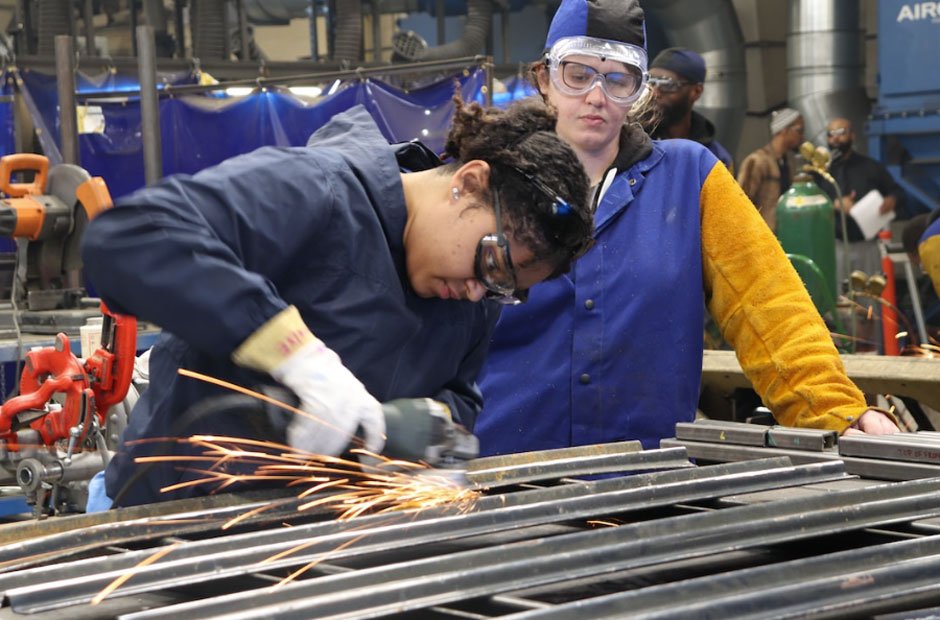The time to decide your future education path can be both exciting and daunting. Given the choices available—from traditional colleges to trade schools—it can be overwhelming. This article is here to guide you through two popular options: traditional college and trade school. We’ll discuss several aspects including costs, time investment, career prospects, and personal preferences to help you make an informed decision. Keep reading below to get a clearer picture of your future career path.
Understanding Traditional College Education
When we think about furthering education beyond high school, the first thing that often comes to mind is a university or college. It’s a widespread path that millions of students globally take every year. Attending a university, such as a Christian university, provides you with a unique opportunity to achieve a broad-based education while pursuing personal growth in your spiritual life. This often includes a mix of both general education courses and specific courses related to your chosen major.
As you would typically spend the first couple of years completing your general education requirements, this exposes you to various disciplines. As a result, it can allow you to discover different interests and perhaps even change your career path. In addition, universities usually offer a variety of resources for students such as libraries, research opportunities, internship programs, and other educational facilities.
However, a college education often demands a significant amount of time and money. For a bachelor’s degree, you’ll typically need to commit to a four-year program. This can be longer if you decide to go part-time or take a break during your studies. Determining whether this investment is right for you largely depends on your career goals and financial standing.
Grasping the Essence of Trade Schools
Unlike traditional colleges, trade schools or vocational schools specialize in training students for a particular job, offering a direct pathway to the workforce. Instead of spending time on unrelated general education courses, you’d be focusing specifically on classes that apply to your chosen career.
Take, for instance, a Nail Technology course. It would teach you exactly what you need to know about nail care, design, treatments, health safety, customer service, and business practices. This type of targeted education could be especially beneficial if you have a clear vision for your career and want to get there as quickly as possible.
Trade schools often feature shorter programs, typically lasting two years or less. The cost associated with trade schools can be significantly less than traditional four-year colleges. Given the lower tuition costs, shorter program durations, and focused training, trade school graduates can oftentimes enter the workforce faster than their university counterparts.
Factoring in Personal Preferences

Your personal inclinations play a significant role in choosing between college and a trade school. If you’re someone who highly values education, enjoys academic pursuits, and likes the idea of spending a few years exploring interests before specializing, then college would seem a good fit.
On the other hand, if you like the idea of focusing solely on courses related to your career interests and getting into the workforce as soon as possible, then trade school should be on your radar. It also may be a good choice if you’re a hands-on learner, love working with tools and machines, or enjoy practical and technical work.
Consider the learning environment too. Traditional colleges have a campus-based setting, offering a wide range of facilities and activities. Conversely, a trade school often focuses more on practical teaching and skill application, thus providing you with more in-field experience.
Evaluating Job Prospects and Salaries
Your long-term career goals and earnings potential should also weigh on your decision. In general, bachelor’s degree holders tend to earn more over their lifetime compared to individuals with vocational certificates. However, this isn’t always the case. Some skilled trades can earn quite a competitive salary, especially with experience and expertise in a particular area.
One advantage trade school graduates generally have over university graduates is faster job placement since their vocational programs are streamlined for specific industries. However, keep in mind that job availability and earnings often vary based on the field, geographic location, and economic conditions.
It’s worth considering both the starting salary right after graduation and the long-term salary potential in your chosen career path.
Altogether, there’s no one-size-fits-all answer to whether a college or a trade school is better. It largely depends on your career objectives, learning preferences, and financial considerations. Be sure to take the time to research and consider all aspects before making a decision. Your choice will have a profound impact on your future, but remember, there’s no wrong path—only the one that best fits your goals and aspirations.

